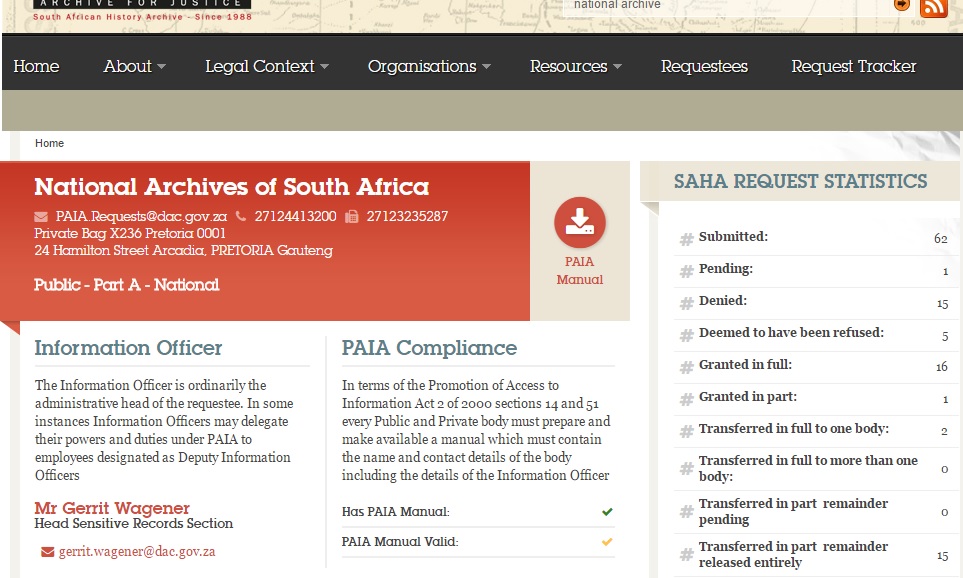South Africa has one of the most progressive "right to know" laws in the world. But in practice, it can be difficult to navigate the complicated structures of state and business in order to work out who has the information that you want. Today, on the 14th International Right to Know Day, and first UNESCO International Day for Universal Access to Information, SAHA is happy to announce the launch of a tool that will make this process much simpler.
The Freedom of Information Programme (FOIP) at the South African History Archive (SAHA) has, over the last 15 years, been using the Promotion of Access to Information Act, 2000 (PAIA), to test the parameters of freedom of information in South Africa by submitting thousands of access to information requests ('PAIA requests'). Since 2011 SAHA has been using an online information management system dubbed the 'Request Tracker', a system designed to manage and track PAIA requests. It is also used by our network partners in South Africa. Over the last four years, using the Request Tracker, visitors to FOIP's website have been able track, through its entire lifecycle - every PAIA request they submit.
Today we launch an additional feature to the Request Tracker: it now boasts a 'Requestee' page, with information about every public and private body to which a PAIA request has been submitted through the Request Tracker.
This new Requestee section of the Request Tracker has an individual page for every public and private body including contact details for the submission of PAIA requests, detail about requests SAHA has recently made and records that SAHA has recently received from that Requestee. For example, National Archives and the Department of Justice. In addition, each page also tracks how legally compliant that body's responses to SAHA's PAIA requests have been, providing information about the number of requests submitted to that body and statistics about the responses to those requests. For example, in the case of National Archives, we can see that 62 requests have been submitted since 2011 with varied decisions been taken on those requests.

The pages for municipal bodies also tracks whether they have made certain key documents accessible on their own website, for example, the annual budget and the Integrated Development Plan. The proactive disclosure of these records on the municipality's website, is mandated by local government legislation such as the Municipal Systems Act, 2000 and the Municipal Finance Management Act, 2003.
The public accessibility of this critical information, made possible with generous funding from Indigo Trust, about public and private bodies that are subject to the provisions of PAIA is an important step in ensuring realisation of the constitutional right of access to information in South Africa.
For more information, contact
Imraan Abdullah or Toerien van Wyk
Freedom of Information Programme
Tel: +27 (0) 11 718 2563
Fax: +27 (0) 865 649 1491
Email: foip@saha.org.za
ABOUT SAHA:
Established in 1988, SAHA is an independent, non-profit, activist archive committed to documenting, supporting, and promoting greater awareness of historical and, since 1994, contemporary struggles for justice and accountability through archival practices and outreach, and the utilisation of access to information laws





